|
'In Memoriam A. H. H.' by Alfred Tennyson Introduction Strong Son of God, immortal Love, Whom we, that have not seen thy face, By faith, and faith alone, embrace, Believing where we cannot prove; Thine are these orbs of light and shade; Thou madest Life in man and brute; Thou madest Death; and lo, thy foot Is on the skull which thou hast made. Thou wilt not leave us in the dust: Thou madest man, he knows not why, He thinks he was not made to die; And thou hast made him: thou art just. Thou seemest human and divine, The highest, holiest manhood, thou. Our wills are ours, we know not how; Our wills are ours, to make them thine. Our little systems have their day; They have their day and cease to be: They are but broken lights of thee, And thou, O Lord, art more than they. We have but faith: we cannot know; For knowledge is of things we see And yet we trust it comes from thee, A beam in darkness: let it grow. Let knowledge grow from more to more, But more of reverence in us dwell; That mind and soul, according well, May make one music as before, But vaster. We are fools and slight; We mock thee when we do not fear: But help thy foolish ones to bear; Help thy vain worlds to bear thy light. Forgive what seem'd my sin in me; What seem'd my worth since I began; For merit lives from man to man, And not from man, O Lord, to thee. Forgive my grief for one removed, Thy creature, whom I found so fair. I trust he lives in thee, and there I find him worthier to be loved. Forgive these wild and wandering cries, Confusions of a wasted youth; Forgive them where they fail in truth, And in thy wisdom make me wise. Martin Ferdinand Quadal (1809–1892) was a Moravian-Austrian engraver and painter.
Alfred Tennyson (1809–1892) was an English poet.
0 Comments
'The Tables Turned' by William Wordsworth Up! up! my Friend, and quit your books; Or surely you'll grow double: Up! up! my Friend, and clear your looks; Why all this toil and trouble? The sun, above the mountain's head, A freshening lustre mellow Through all the long green fields has spread, His first sweet evening yellow. Books! 'tis a dull and endless strife: Come, hear the woodland linnet, How sweet his music! on my life, There's more of wisdom in it. And hark! how blithe the throstle sings! He, too, is no mean preacher: Come forth into the light of things, Let Nature be your Teacher. She has a world of ready wealth, Our minds and hearts to bless-- Spontaneous wisdom breathed by health, Truth breathed by cheerfulness. One impulse from a vernal wood May teach you more of man, Of moral evil and of good, Than all the sages can. Sweet is the lore which Nature brings; Our meddling intellect Mis-shapes the beauteous forms of things:-- We murder to dissect. Enough of Science and of Art; Close up those barren leaves; Come forth, and bring with you a heart That watches and receives. Frederick Fursman (1874–1943) was an American impressionist painter.
William Wordsworth (1770–1850) was an English poet. 'The Night' by Henry Vaughan John III. 2 Through that pure virgin shrine, That sacred veil drawn o'er Thy glorious noon, That men might look and live, as glow-worms shine And face the moon: Wise Nicodemus saw such light As made him know his God by night. Most blest believer he! Who in that land of darkness and blind eyes Thy long-expected healing wings could see When Thou didst rise! And, what can never more be done, Did at midnight speak with the Sun! Oh, who will tell me where He found Thee at that dead and silent hour? What hallowed solitary ground did bear So rare a flower; Within whose sacred leaves did lie The fullness of the Deity? No mercy-seat of gold, No dead and dusty cherub, nor carved stone, But His own living works did my Lord hold, And lodge alone, Where trees and herbs did watch and peep And wonder, while the Jews did sleep. Dear Night! this world's defeat; The stop to busy fools; care's cheek and curb; The day of spirits; my soul's calm retreat Which none disturb! Christ's progress and His prayer-time; The hours to which high Heaven doth chime. God's silent, searching flight; When my Lord's head is filled with dew, and all His locks are wet with the clear drops of night; His still, soft call; His knocking-time; the soul's dumb watch, When spirits their fair kindred catch. Where all my loud, evil days Calm and unhaunted as is thy dark tent, Whose peace but by some angel's wing or voice Is seldom rent; Then I in heaven all the long year Would keep, and never wander here. But living where the sun Doth all things wake, and where all mix and tire Themselves and others, I consent and run To every mire; And by this world's ill-guiding light Err more than I can do by night. There is in God--some say-- A deep but dazzling darkness; as men here Say it is late and dusky because they See not all clear. Oh, for that Night! where I in Him Might live invisible and dim. Nikolay Dubovskoy (1859–1918) was a Russian landscape painter.
Henry Vaughan (1621–1695) was a Welsh writer and a medical physician. 'Night' by William Blake The sun descending in the west, The evening star does shine; The birds are silent in their nest, And I must seek for mine. The moon, like a flower, In heaven's high bower, With silent delight Sits and smiles on the night. Farewell, green fields and happy groves, Where flocks have took delight. Where lambs have nibbled, silent moves The feet of angels bright; Unseen they pour blessing; And joy without ceasing, On each bud and blossom, And each sleeping bosom. They look in every thoughtless nest, Where birds are cover'd warm; They visit caves of every beast, To keep them all from harm. If they see any weeping That should have been sleeping, They pour sleep on their head, And sit down by their bed. When wolves and tigers howl for prey, They pitying stand and weep; Seeking to drive their thirst away, And keep them from the sheep. But if they rush dreadful, The angels, most heedful, Receive each mild spirit, New worlds to inherit. And there the lion's ruddy eyes Shall flow with tears of gold, And pitying the tender cries, And walking round the fold. Saying, 'Wrath, by his meekness, And, by his health, sickness, Is driven away From our immortal day. 'And now beside thee, bleating Lamb, I can lie down and sleep; Or think on Him who bore thy name, Graze after thee and weep. For, wash'd in life's river, My bright mane for ever Shall shine like the gold As I guard o'er the fold.' Henri Rousseau (1844–1910) was a French post-impressionist painter.
William Blake (1757–1827) was an English poet, painter and printmaker. 'A Song to David' by Christopher Smart (excerpt) Sweet is the dew that falls betimes, And drops upon the leafy limes; Sweet Hermon's fragrant air: Sweet is the lily's silver bell, And sweet the wakeful tapers smell That watch for early pray'r. Sweet the young nurse with love intense, Which smiles o'er sleeping innocence; Sweet when the lost arrive: Sweet the musician's ardour beats, While his vague mind's in quest of sweets, The choicest flow'rs to hive. Sweeter in all the strains of love, The language of thy turtle dove, Pair'd to thy swelling chord; Sweeter with ev'ry grace endu'd, The glory of thy gratitude, Respir'd unto the Lord. Strong is the horse upon his speed; Strong in pursuit the rapid glede, Which makes at once his game: Strong the tall ostrich on the ground; Strong thro' the turbulent profound Shoots xiphias to his aim. Strong is the lion—like a coal His eye-ball—like a bastion's mole His chest against the foes: Strong, the gier-eagle on his sail, Strong against tide, th' enormous whale Emerges as he goes. But stronger still, in earth and air, And in the sea, the man of pray'r; And far beneath the tide; And in the seat to faith assign'd, Where ask is have, where seek is find, Where knock is open wide. Beauteous the fleet before the gale; Beauteous the multitudes in mail, Rank'd arms and crested heads: Beauteous the garden's umbrage mild, Walk, water, meditated wild, And all the bloomy beds. Beauteous the moon full on the lawn; And beauteous, when the veil's withdrawn, The virgin to her spouse: Beauteous the temple deck'd and fill'd, When to the heav'n of heav'ns they build Their heart-directed vows. Beauteous, yea beauteous more than these, The shepherd king upon his knees, For his momentous trust; With wish of infinite conceit, For man, beast, mute, the small and great, And prostrate dust to dust. Precious the bounteous widow's mite; And precious, for extreme delight, The largess from the churl: Precious the ruby's blushing blaze, And alba's blest imperial rays, And pure cerulean pearl. Precious the penitential tear; And precious is the sigh sincere, Acceptable to God: And precious are the winning flow'rs, In gladsome Israel's feast of bow'rs, Bound on the hallow'd sod. More precious that diviner part Of David, ev'n the Lord's own heart, Great, beautiful, and new: In all things where it was intent, In all extremes, in each event, Proof—answ'ring true to true. Glorious the sun in mid career; Glorious th' assembled fires appear; Glorious the comet's train: Glorious the trumpet and alarm; Glorious th' almighty stretch'd-out arm; Glorious th' enraptur'd main: Glorious the northern lights a-stream; Glorious the song, when God's the theme; Glorious the thunder's roar: Glorious hosanna from the den; Glorious the catholic amen; Glorious the martyr's gore: Glorious—more glorious is the crown Of Him that brought salvation down By meekness, call'd thy Son; Thou that stupendous truth believ'd, And now the matchless deed's achiev'd, Determin'd, dar'd, and done. Michael Steiner (b. 1955) is a German visual artist and magnetic painter.
Christopher Smart (1722–1771) was an English poet. 'Sonnet 19: (On His Blindness) When I consider...' by John Milton When I consider how my light is spent, Ere half my days, in this dark world and wide, And that one talent which is death to hide Lodged with me useless, though my soul more bent To serve therewith my Maker, and present My true account, lest He returning chide, 'Doth God exact day-labour, light denied?' I fondly ask. But Patience, to prevent That murmur, soon replies, 'God doth not need Either man's work, or his own gifts. Who best Bear his mild yoke, they serve him best. His state Is kingly: thousands at his bidding speed And post o'er land and ocean without rest; They also serve who only stand and wait.' Frederic Leighton (1830–1896) was a British painter, artist and sculptor.
John Milton (1608–1674) was an English poet. 'The Collar' by George Herbert I struck the board, and cried 'No more! I will abroad. What, shall I ever sigh and pine? My lines and life are free; free as the road, Loose as the wind, as large as store. Shall I be still in suit? Have I no harvest but a thorn To let me blood, and not restore What I have lost with cordial fruit? Sure there was wine Before my sighs did dry it: there was corn Before my tears did drown it. Is the year only lost to me? Have I no bays to crown it? No flowers, no garlands gay? All blasted? All wasted? Not so, my heart; but there is fruit, And thou hast hands. Recover all thy sigh-blown age On double pleasures; leave thy cold dispute Of what is fit and not; forsake thy cage, Thy rope of sands, Which petty thoughts have made, and made to thee Good cable to enforce and draw, And be thy law While thou didst wink and wouldst not see. Away, take heed: I will abroad. Call in thy death's head there: tie up thy fears. He that forbears To suit and serve his need, Deserves his load.' But as I raved and grew more fierce and wild At every word, Methought I heard one calling, 'Child!' And I replied, 'My Lord!' Joshua Reynolds (1723–1792) was an English portrait painter.
George Herbert (1593–1633) was a Welsh poet and an Anglican priest. 'The Singer Saith of His Song' by Francis Thompson The touches of man's modern speech Perplex her unacquainted tongue; There seems through all her songs a sound Of falling tears. She is not young. Within her eyes' profound arcane Resides the glory of her dreams; Behind her secret cloud of hair, She sees the Is beyond the Seems. Her heart sole-towered in her steep spirit, Somewhat sweet is she, somewhat wan; And she sings the songs of Sion By the streams of Babylon. William Keith (1838–1911) was a Scottish-American painter.
Francis Thompson (1859–1907) was an English and Catholic poet. 'Trees' by Walter de la Mare Of all the trees in England, Her sweet three corners in, Only the Ash, the bonnie Ash Burns fierce while it is green. Of all the trees in England, From sea to sea again, The Willow loveliest stoops her boughs Beneath the driving rain. Of all the trees in England, Past frankincense and myrrh, There's none for smell, of bloom and smoke, Like Lime and Juniper. Of all the trees in England, Oak, Elder, Elm and Thorn, The Yew alone burns lamps of peace For them that lie forlorn. Grigoriy Grigorievich Myasoyedov (1834–1911) was a Russian realist painter.
Walter John de la Mare (1873–1956) was an English poet, short story writer and novelist. 'Sonnet XXIX' by William Shakespeare When in disgrace with fortune and men's eyes I all alone beweep my outcast state, And trouble deaf heaven with my bootless cries, And look upon myself and curse my fate, Wishing me like to one more rich in hope, Featur'd like him, like him with friends possessed, Desiring this man's art and that man's scope, With what I most enjoy contented least; Yet, in these thoughts myself almost despising, Haply I think on thee—and then my state (Like to the lark at break of day arising From sullen earth) sings hymns at heaven's gate: For thy sweet love remember'd such wealth brings That then I scorn to change my state with kings. Bernard Reynolds (b. 1952) is an Irish landscape painter. His painting is of the sun rising over the Loughcrew Hills near Oldcastle, County Meath.
William Shakespeare (1564–1616) was an English playright, poet and actor. |
Categories
All
ForecastSupport UsArchives
July 2024
|
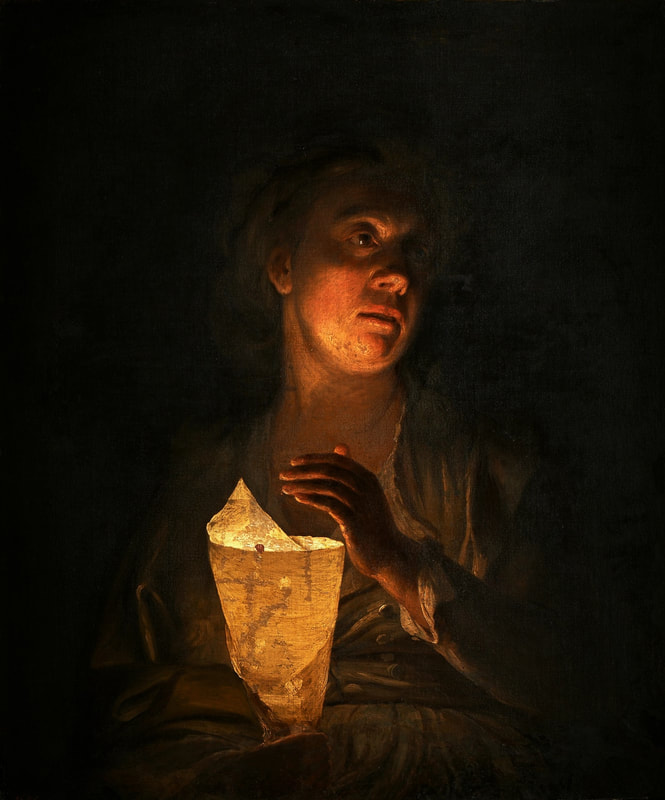

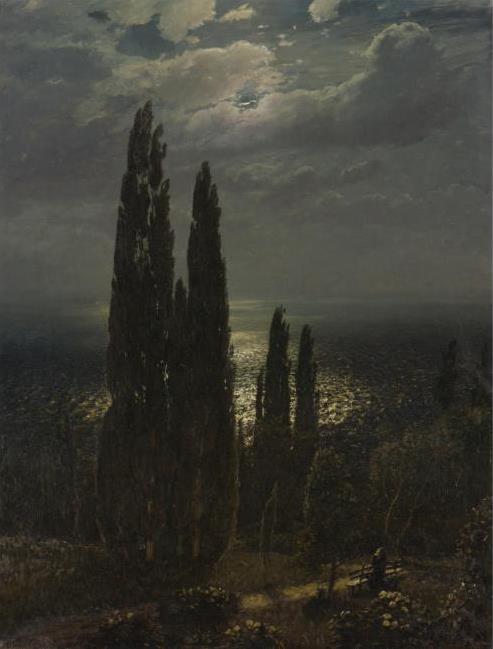
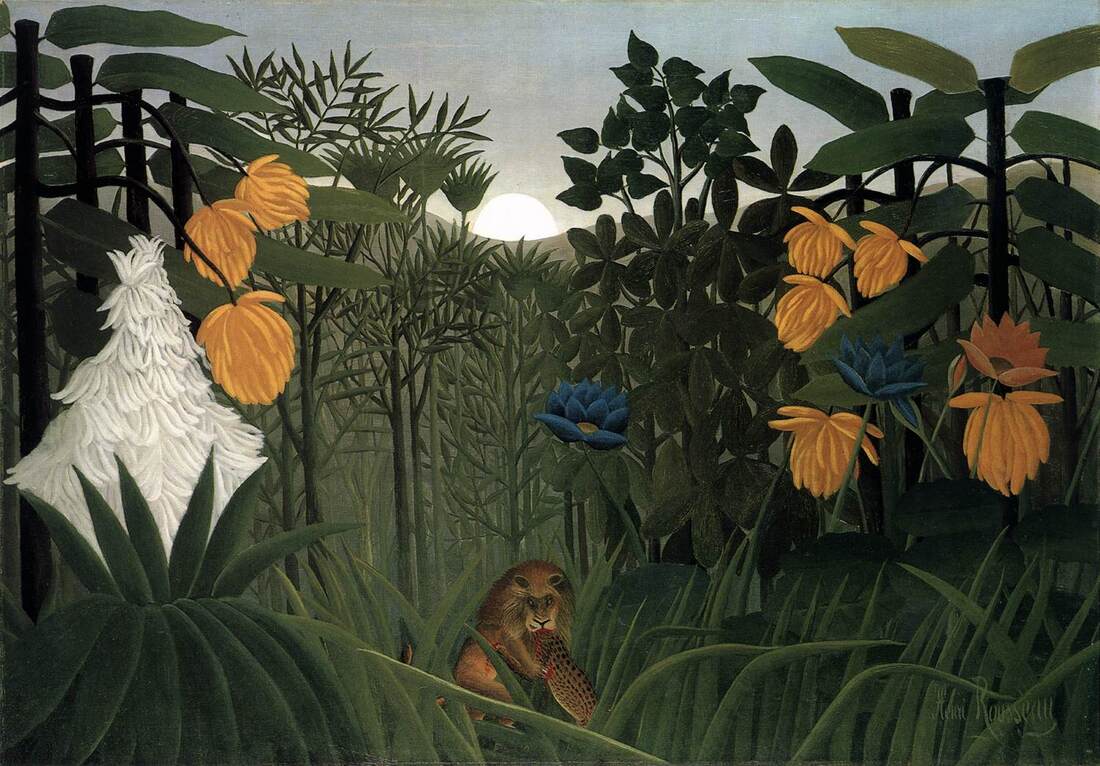
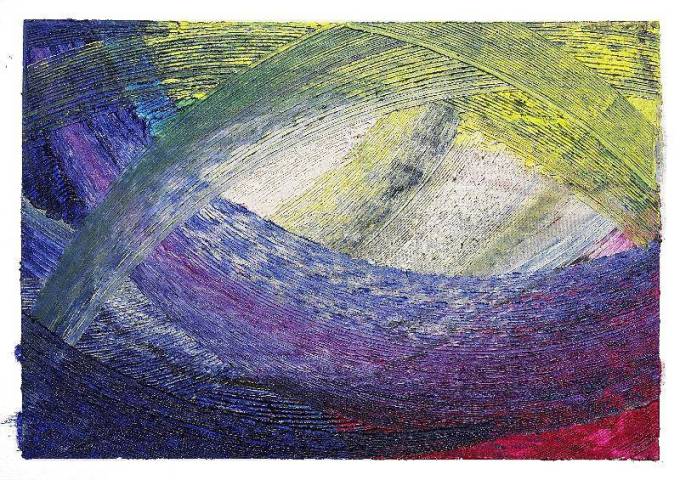
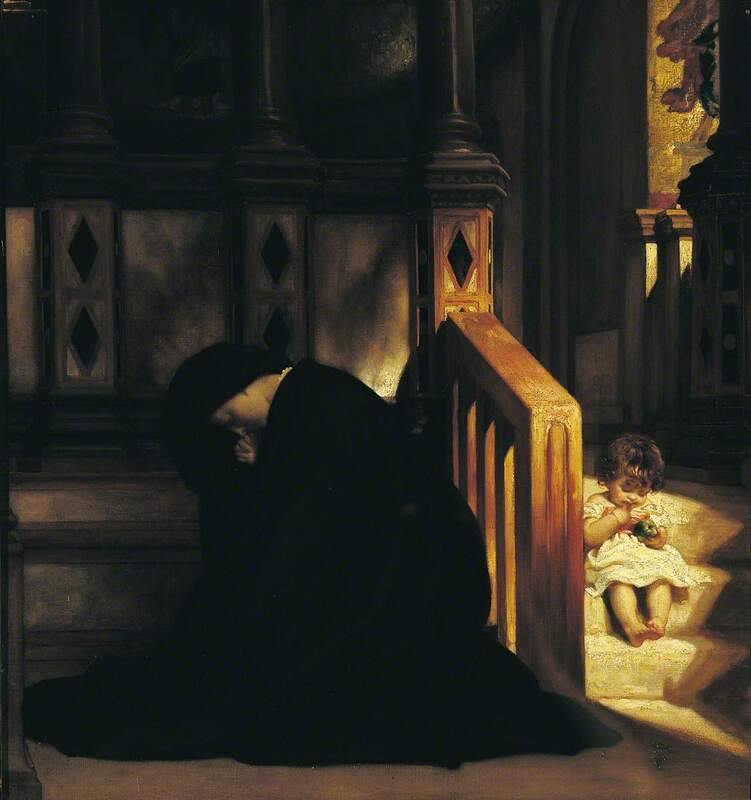
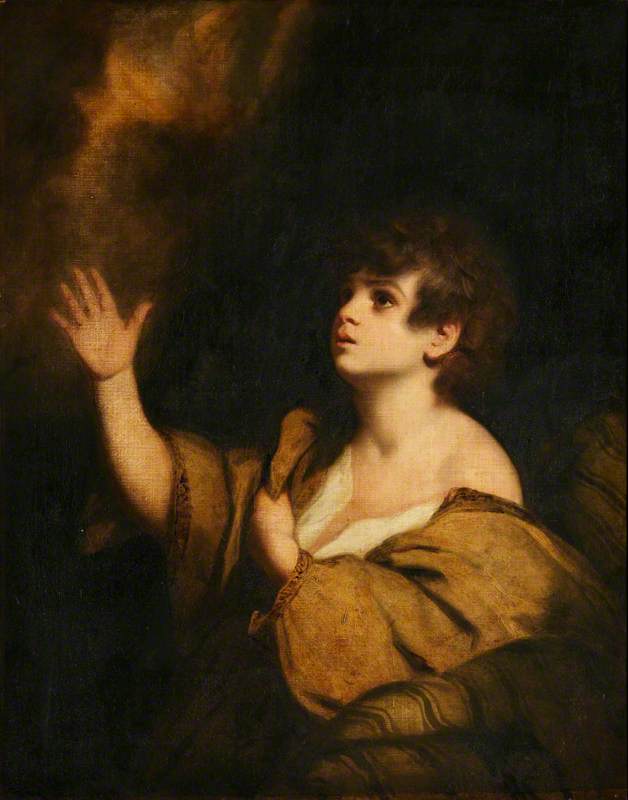
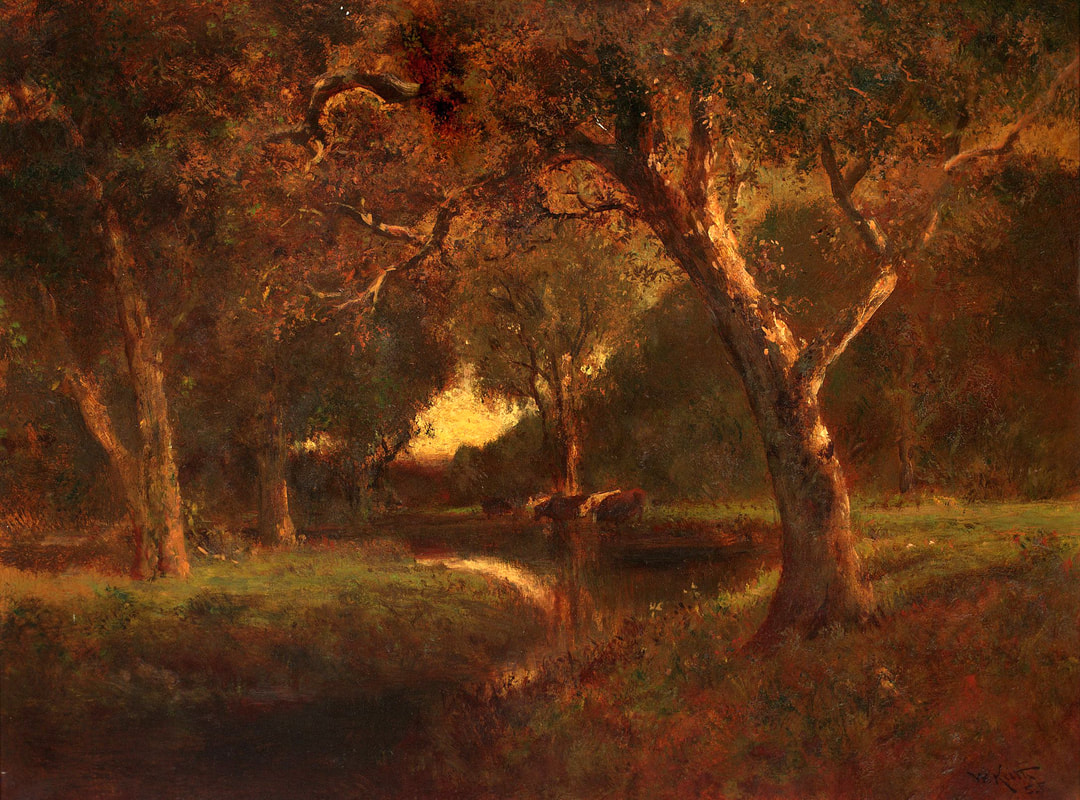
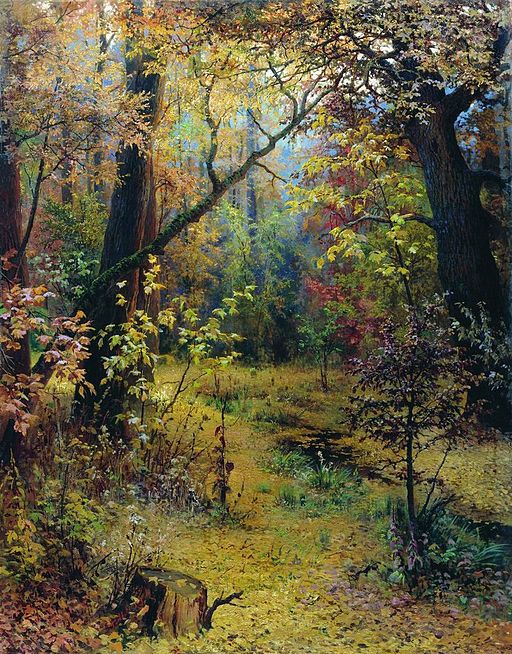
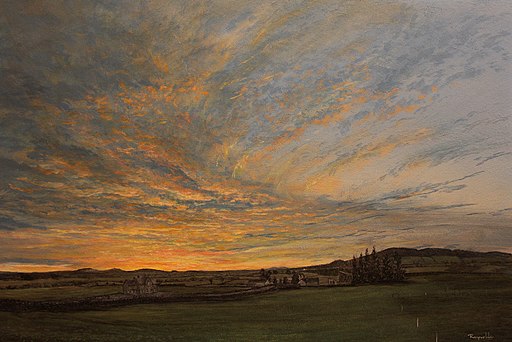
 RSS Feed
RSS Feed
